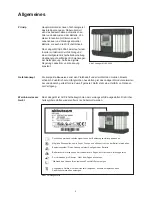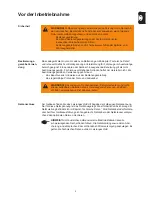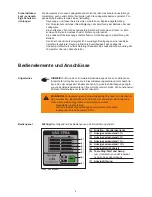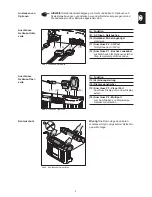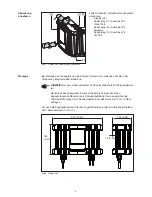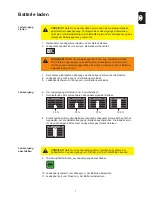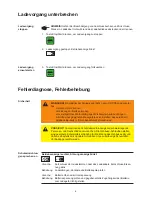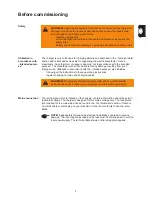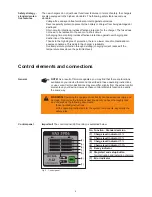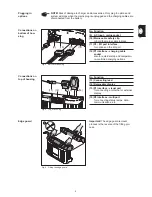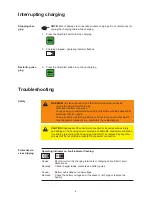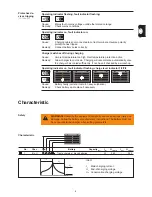
IV
ud_fr_ls_sv_01055 012009
-
If the surface of the charger housing is dirty, clean with a soft cloth and
solvent-free cleaning agent only
Maintenance and repair work must only be carried out by authorised person-
nel. Use only original replacement and wearing parts (also applies to stan-
dard parts). It is impossible to guarantee that bought-in parts are designed
and manufactured to meet the demands made on them, or that they satisfy
safety requirements.
Do not carry out any modifications, alterations, etc. without the
manufacturer’s consent.
Dispose of in accordance with the applicable national and local regulations.
The user is responsible for the safekeeping of any changes made to the
factory settings. The manufacturer accepts no liability for any deleted perso-
nal settings.
Data protection
Under normal operating conditions the charger requires only a minimum of
care and maintenance. However, it is vital to observe some important points
to ensure it remains in a usable condition for many years.
-
Before switching on, always check the mains plug and cable, and char-
ger leads/charging terminals for any signs of damage.
Maintenance and
repair
-
Ensure that the cooling air can enter and exit unhindered through the air
ducts on the charger.
-
Have the mains and charger supply checked regularly by a qualified
electrician to ensure the PE conductors are functioning properly.
-
Any safety devices and components that are not functioning properly or
are in an imperfect condition must be repaired by an qualified technician
before switching on the charger.
-
Never bypass or disable protection devices.
-
After installation, a freely accessible mains plug will be required.
Safety measures
in normal mode
EMC device
classifications
Devices with emission class A:
-
are only designed for use in an industrial setting
-
can cause conducted and emitted interference in other areas.
Devices with emission class B:
-
satisfy the emissions criteria for residential and industrial areas. This
also applies to residential areas in which power is supplied from the
public low-voltage grid.
EMC device classification as per the rating plate or technical specifications
EMC measures
In certain cases, even though a device complies with the standard limit
values for emissions, it may affect the application area for which it was
designed (e.g. when there is sensitive equipment at the same location, or if
the site where the device is installed is close to either radio or television
receivers).
If this is the case, then the operator is obliged to take appropriate action to
rectify the situation.



